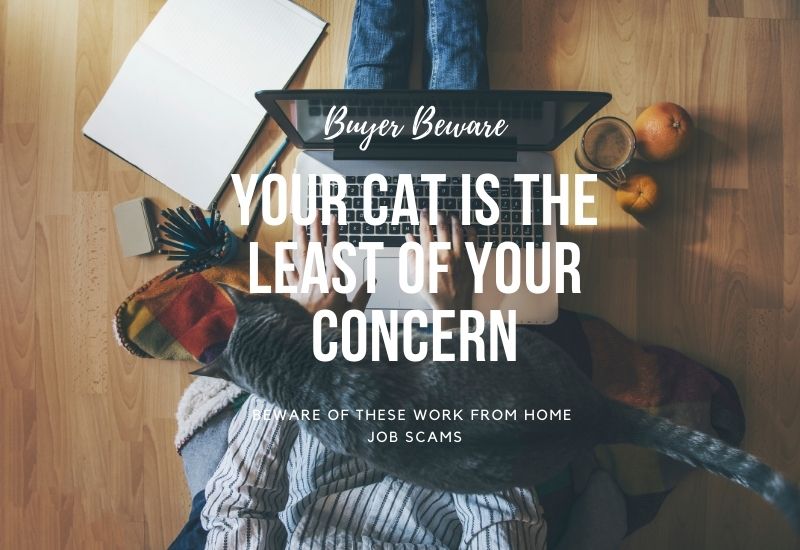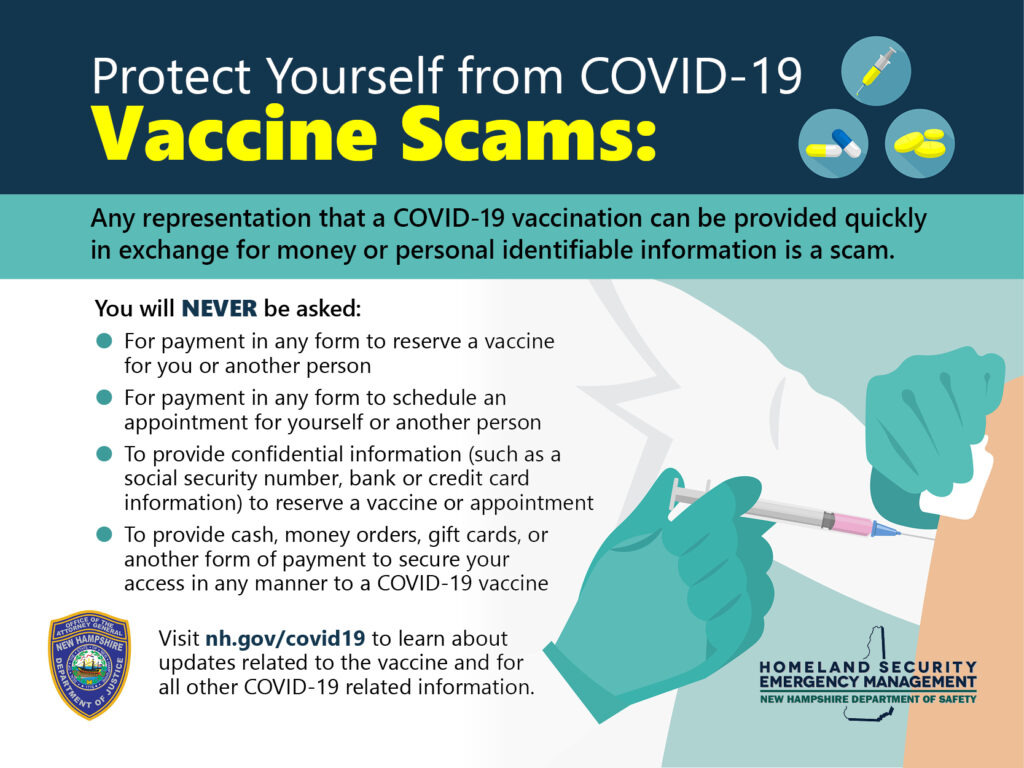The following is posted in the Federal trade Commission (FTC) Consumer Alerts:
Scammers advertise jobs the same way legitimate employers do — online (in ads, on job sites, and social media), in newspapers, and sometimes on TV and radio. They promise you a job, but what they want is your money and your personal information. Here are some examples of jobs scams and tips to help you avoid them.
- Examples of Job Scams
- How to Avoid a Job Scam
- Tips for Finding a Job
- What to Do If You Paid a Scammer
- Report Job Scams to the FTC
Examples of Job Scams
Work-from-home job scams
Many people would like to work from home and generate income. Scammers know this, so they place ads, often online, claiming that they have jobs where you can make thousands of dollars a month working from home with little time and effort. The job could be anything from reshipping products to selling things to people you know. Sometimes the scammers try to get you interested by saying that you can be your own boss, (link to new Bogus Business Offers article) start your own business, or set your own schedule.
But instead of making money, you end up paying for starter kits, “training,” or certifications that are useless. You might also find that your credit card is charged without your permission, or you get caught up in a fake check scam. If someone offers you a job and they claim that you can make a lot of money in a short period of time and with little work, that’s a scam.Here are some examples of work-from-home job scams:
- Reshipping scams. If you’re searching for a job online, you might see positions advertised for quality control managers or virtual personal assistants that have been placed by scammers. But here’s how you can tell it’s a scam: once you’re “hired,” the company says that your “job” is to receive packages at home, discard the original packaging and receipts, repackage the products, and then reship them to an address they give you.Sometimes the address is overseas. The products are often high-priced goods, like name-brand electronics, bought using stolen credit cards. Reshipping goods is never a real job. That’s simply being part of a scam. Sometimes the company tells you it will send your first paycheck after you work for a month, but the paycheck never arrives. And when you try to contact the company, you’ll find that the phone number is no longer connected and the website is deactivated. This “job” is a scam, and if you gave your personal information thinking it was for payroll, you may now have an identity theft problem.
- Reselling merchandise scams. In this scam, you may get a call out of the blue from a stranger offering you a job opportunity. Or you may see an ad online or in your local newspaper. In either case, they say that you can make money buying brand-name luxury products for less than retail prices, then selling those products for a profit. But after you pay for the products, the package never arrives or, if it does, it’s full of junk.
Nanny, caregiver, and virtual personal assistant job scams
Scammers post fake job ads for nannies, caregivers, and virtual assistants on job sites. Or they may send emails that look like they’re from someone in your community, or who is part of an organization you know, like your college or university. If you apply, the person who hires you might send you a check. They’ll tell you to keep part of the money for your services and then send the rest to someone else. That is a scam. A legitimate employer will never ask you to do that. What happens next is that the check is fake. It can take weeks for a bank to discover this, but once they do, the bank will want you to repay that full amount. So: if you get an offer that includes depositing a check and then using some of the money for any reason, that’s a scam. Walk away.
Mystery shopper scams
Getting paid to shop sounds like a dream job — especially if you’re going to school full-time or looking for a side job. But while some mystery shopping jobs are legitimate, many are scams. Legitimate mystery shopping companies won’t ask you to pay for certifications, directories of jobs, or job guarantees. If someone asks you to pay to get a job, that’s a scam. And if they want you to deposit a check and send money back, stop. That’s a sign of a fake check scam. Read Mystery Shopper Scams to learn more.
Job placement service scams
While many staffing agencies, temporary agencies, headhunters, and other placement firms are legitimate, others lie about what they will do for you, promote outdated or fake job openings, and charge fees for so-called services. Legitimate placement firms do not typically charge a fee. Instead, the hiring company pays them a fee to find qualified candidates. If a placement firm asks you for a fee, walk away. You could be dealing with a scam.
Government and postal jobs scams
You respond to an ad that promises jobs with the federal government or postal service. But then you have to pay a fee to get the job, or pay for study materials so you’ll get a high score on the postal exam. Those are scams. Information about job openings with the federal government or U.S. Postal Service is free and available to everyone. And it’s free to apply for a federal or postal job. Find and apply for a job with the federal government at USAJobs.gov, or visit usps.com/employment to find jobs with the U.S. Postal Service.
How to Avoid a Job Scam
Before you accept a job offer, and certainly before you pay for one, take these steps to protect yourself from job scams:
- Do an online search. Look up the name of the company or the person who’s hiring you, plus the words “scam,” “review,” or “complaint.” You might find out they’ve scammed other people.
- Talk to someone you trust. Describe the offer to them. What do they think? This also helps give you vital time to think about the offer.
- Don’t pay for the promise of a job. Legitimate employers, including the federal government, will never ask you to pay to get a job. Anyone who does is a scammer.
- Never bank on a “cleared” check. No legitimate potential employer will ever send you a check and then tell you to send on part of the money, or buy gift cards with it. That’s a fake check scam. The check will bounce, and the bank will want you to repay the amount of the fake check.
Tips for Finding a Job
When you’re searching for a job, use safe and reliable sources. Here are a few places to start:
- USAJobs.gov — This is the federal government’s official site with job openings nationwide.
- CareerOneStop — Sponsored by the U.S. Department of Labor, CareerOneStop lists hundreds of thousands of jobs. It also links to employment and training programs in each state.
- USA.gov — Find local government websites, which list any open positions they may have on their websites.
Also, when you’re applying for a job, an employer may do a background check. Read Background Checks to learn more.
What to Do if You Paid a Scammer
No matter how you paid — debit or credit card, bank or wire transfer, gift card, or cash reload card — immediately contact the company you used to send the money, report the fraud, and ask to have the transaction reversed, if possible. For specific advice and tips on how to reverse different types of payments, read What to Do If You Were Scammed.
Report Job Scams to the FTC
If you see or lose money to a job scam, report it to the FTC at ReportFraud.ftc.gov. You can also report it to your state attorney general.
Find out more about how to avoid scams at ftc.gov/scams.Tagged with: job search, jobs, scamDecember 2020






